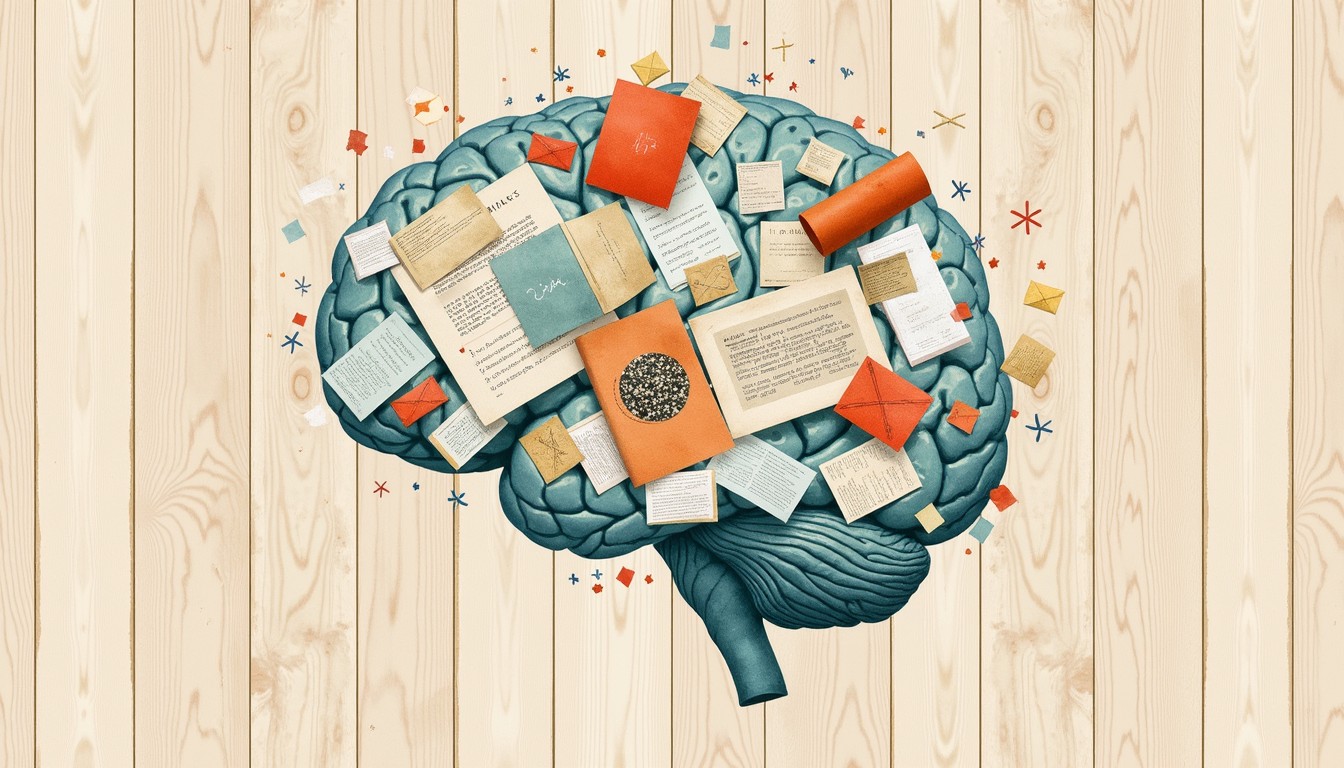Why Your Child Forgets: The Brain's 'Small Thali' and How to Use It

Have you ever experienced this? You’re helping your child with a math problem. You explain Step 1, they nod. You explain Step 2, they get it. You explain Step 3 and Step 4, and they still seem to follow. But when you say, "Okay, now you try one," they stare at the page, completely lost.
It’s one of the most common frustrations for parents. Your child seems intelligent, but they can't hold on to information long enough to use it. They forget the beginning of a long instruction by the time you reach the end.
This isn't a sign of a bad memory or a lack of effort. The reason for this struggle lies in a small but incredibly important part of the brain called Working Memory. And the best way to understand it is to think of it like a small steel thali.
Your Brain's Active Workspace: The 'Mental Thali'
Imagine your child's brain has a kitchen. The long-term memory is like a giant pantry or storage cabinet—it can store vast amounts of information for years (like old song lyrics or the route to their grandparents' house).
But the working memory is the small thali they are using to eat right now. It's their mental workspace.
Here’s the most important thing to know about this mental thali: it is very, very small.
Research shows that we can only hold and actively process about four new pieces of information at a time. If you try to pile on more than that, things start to spill over and a mess is created. This is why a teacher explaining a 7-step science experiment all at once is guaranteed to cause confusion. The child's thali simply overflows.
Understanding this isn't just a fun fact; it's the key to unlocking how your child learns.
The Three Enemies of the 'Mental Thali'
As a parent, your job is to help your child keep their mental thali clean and organized so they can focus on the "food" (the lesson). Here in Navi Mumbai, on a busy Wednesday morning like today, it’s easy to see the enemies of focus all around us. They are:
1. Too Much Food at Once (Information Overload): This is the most common problem. When a complex definition or a multi-step math problem is presented in one big chunk, it overloads the thali. The brain doesn't know what to focus on and gives up.
2. A Shaky Table (Distractions): Each distraction is like someone bumping the table your thali is on. A WhatsApp notification, the sound of the TV in the next room, or even just a cluttered desk—all of these disrupt the fragile workspace of the working memory, causing information to "spill." The smartphone is the biggest enemy here.
3. The Fear of Spilling (Stress and Anxiety): Exam fear is a perfect example. When a child is stressed or anxious, those emotions are like unwanted food items already taking up precious space on their thali. This leaves very little room for them to actually think about the questions on the exam paper.
How to Help Your Child Manage Their 'Thali'
You can't make the thali bigger—everyone's is small. But you can become a smarter "server." Here are three practical ways to protect your child’s working memory:
1. Serve in Small Portions (Chunking): Break down every big task. Instead of saying, "Let's study this whole chapter," say, "Let's just master this one paragraph." For a math problem, work through Step 1 until it's clear, then move to Step 2. Serve one dish at a time.
2. Set a Clean and Quiet Table (Remove Distractions): Create a dedicated, clutter-free study space. Make the "phone in another room" rule non-negotiable during study time. A quiet environment protects the mental thali from being shaken.
3. Make the Basics Automatic (Move Food to the Pantry): Why is it crucial to memorize multiplication tables? Because when a skill becomes automatic, it moves from the thali (working memory) to the pantry (long-term memory). This frees up all the space on the thali for more complex thinking, like solving a difficult word problem. Practicing the basics is the ultimate hack for working memory.
By understanding that your child is working with a small plate, you can change your entire approach. You’ll become more patient, your methods will be more effective, and you’ll empower your child to learn without the frustration of feeling constantly overwhelmed.





